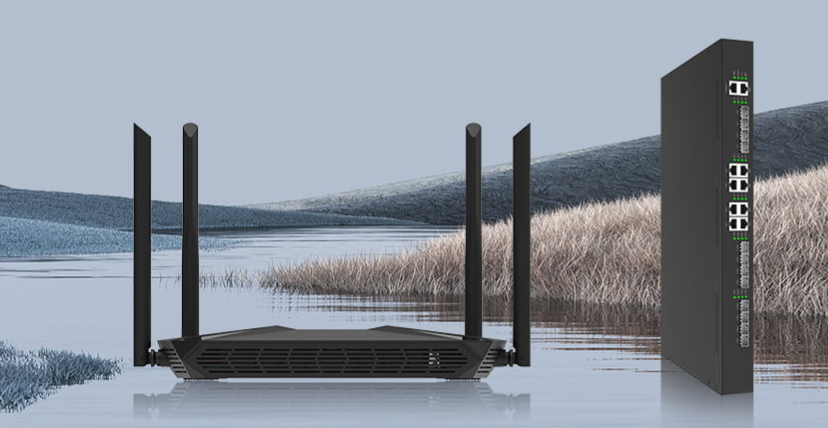SONET: synchronous optical network, a digital transmission standard, was introduced in the United States in 1988. The level 1 electrical signal is denoted as STS-1, and the level 1 optical signal isdenoted as OC-1, with a rate of 51.84Mb / s. On this basis,upgrade through multiplexing to improve transmission speed and transmission efficiency.Later, ITU-T established the international unified SDH world standard based on this standard, so SONET can be regarded as a part of the SDH standard.
SONET defines four optical interface layer, from top to bottom is:
1. The photon layer (Photonic Layer) processes the bit transmission across the optical cable, and is responsible for the conversion between the electrical signal of the synchronous transmission(STS) and the optical signal of the optical carrier(OC). Communication is carried out by electro-optic converters in this layer.
2. Section layer (Section Layer) transmits STS-N frames on the optical cable.It has the function of framing and error detection
The above two layers are necessary, but the following two layers are optional.
3. The line layer (Line Layer) is responsible for path layer synchronization and multiplexing, and automatic protection of the exchange.
4. The path layer (Path Layer) deal with the transmission of services between the path terminal devices PTE (Path Terminating Element), At this PTE is a switch with SONET capabilities. The path layer also have an interface to non-SONET networks.
These four layers can actually be seen as a subdivision of the physical layer in the OSI 7 layer model, because all the four layers are located in the OSI physics layer.
SONET The commonly used point is its specified transmission rate:
OC-1 — 51.84Mbit/s
OC-3 — 155.52 Mbit/s
OC-12 — 622.08 Mbit/s
OC-24 — 1.244 Gbit/s
OC-48 — 2.488 Gbit/s
OC-96 — 4.976 Gbit/s
OC-192 — 9.953 Gbit/s
OC-256 — about 13 Gbit /s
OC-384 — about 20 Gbit/s
OC-768 — about 40 Gbit/s
OC-1536 — about 80 Gbit/s
OC-3072 — about 160 Gbit/s
We're talking about the synchronous fiber networks,the general introduction is the above content.For the related optical fiber network equipment involved in Shenzhen HDV Photoelctron Technology Co., Ltd., such as: A C ONU /Communication ONU / Intelligent ONU / Optical fiber ONU / XPON ONU / GPON ONU, or OLT series, transceiver series and so on. Are a kind of network equipment, if there is a need for customers, you can return to the home page to contact our company, waiting for your presence.






